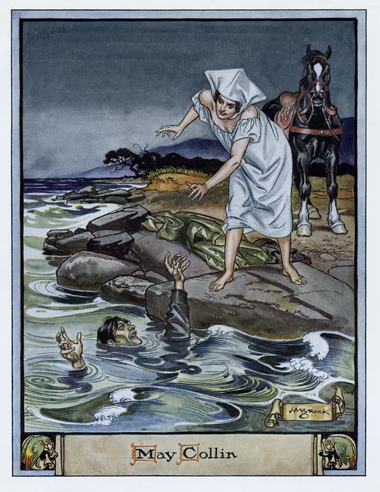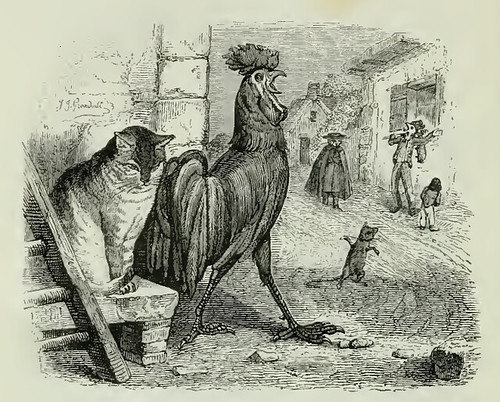HODIE (Roman Calendar): ante diem sextum decimum Kalendas Octobres.
MYTHS and LEGENDS: The art image for today's legend shows The Return of Odysseus; you can also see the legends for the current week listed together here.

TODAY'S MOTTOES and PROVERBS:
TINY PROVERBS: Today's tiny proverb is: Cotidiana vilescunt (English: Everyday things lose their appeal).
3-WORD MOTTOES: Today's 3-word verb-less motto is Nunquam non paratus (English: Never unprepared).
ANIMAL PROVERBS: Today's animal proverb is In cavea non canit luscinia (English: In a cage, the nightingale does not sing).
POLYDORUS: Today's proverb from Polydorus is: Cum sancto sanctus eris, cum perverso perverteris (English: With the holy man you will be holy; with the wicked man you will be wicked).
PROPER NAME PROVERBS: Today's proper name proverb from Erasmus is Stupidior Praxillae (English: More stupid than the Adonis of Praxilla; from Adagia 2.9.11 - this refers to a poetess Praxilla who wrote a poem about Adonis in which Adonis foolishly said that the most beautiful things in the world were the sun, apples, and pumpkins; including pumpkins in that list made Adonis look so foolish that he became a byword for foolishness).
GREEK PROVERBS: Today's proverb is Χαλεπὸν τὸ εὖ γνῶναι (English: To know something well is hard work).
BREVISSIMA: The distich poster for today is Fert Omnia Secum. Click here for a full-sized view.

And here are today's proverbial LOLcats:


TODAY'S FABLES:
FABULAE FACILES: The fable from the Fabulae Faciles widget is Oves Timidae et Pastor, the story of the shepherd who tried to inspire his sheep to be brave, but in vain (this fable has a vocabulary list).
MILLE FABULAE: The fable from the Mille Fabulae et Una widget is Mus, Catus, et Gallus, the story of the mouse's impressions of the rooster and the cat.

Myth and Folklore Books. I'm accumulating some book recommendations for the classes I teach and wanted to share them here. Today's book is A Book of Old Ballads - Volume 2 by Beverley Nichols; you can see the table of contents here. This is a free Amazon Kindle eBook, and you don't need a Kindle to read it - you can read Kindle books on any computer or mobile device, or you can use the Amazon Cloud Reader in your browser.

